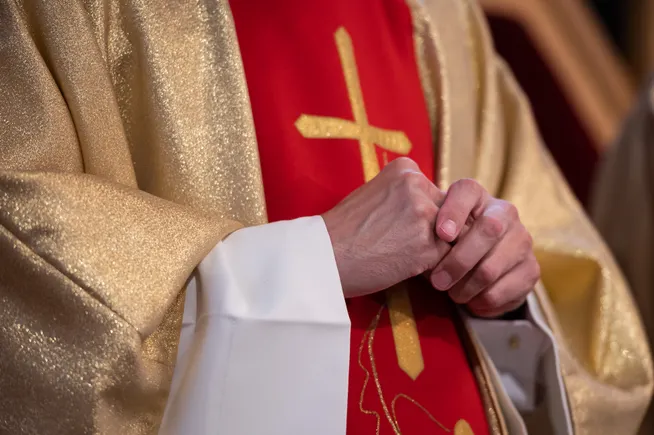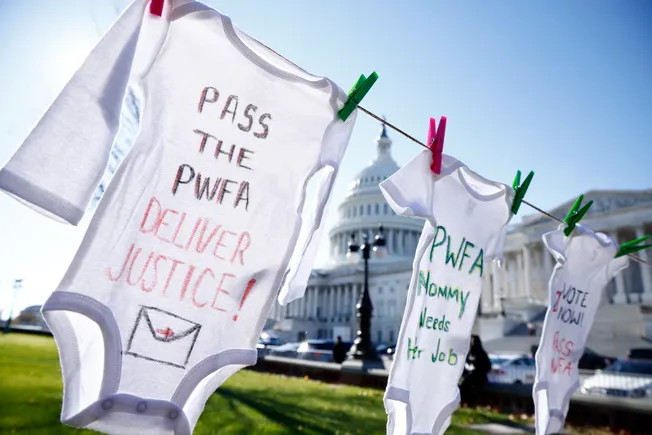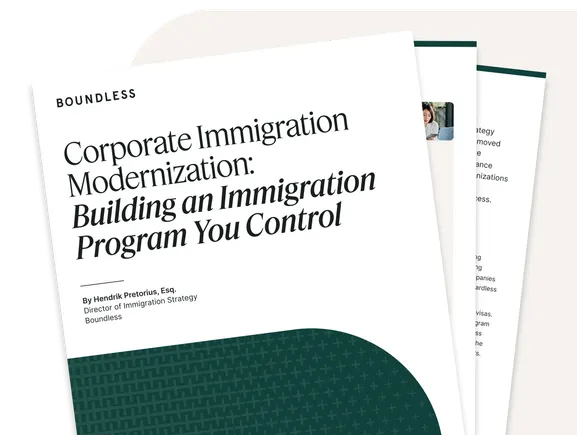Dive Brief:
- A federal judge on Wednesday blocked the U.S. Equal Employment Opportunity Commission from enforcing the Pregnant Workers Fairness Act against the U.S. Conference of Catholic Bishops “in a way that would require them to make accommodations for abortions, contraception, sterilization, artificial reproductive technologies, or surrogacy” in violation of their religious beliefs.
- The decision in U.S. Conference of Catholic Bishops v. EEOC grants USCCB’s July request to expand a ban on the agency from enforcing its PWFA rule requiring accommodation for elective abortions to also include medical-related abortions.
- The order marks another judicial rebuke of EEOC’s rule, which has seen a number of successful challenges since it took effect in June 2024.
Dive Insight:
The same judge in the USCCB case, David Joseph, in May of this year vacated the rule as it pertained to elective abortions — not just for USCCB, but nationwide. In contrast, the Sept. 3 order stopping the EEOC from enforcing the rule related to medical abortions and the other stated carve-outs only applies to USCCB.
In an August response to the USCCB’s request for an injunction, EEOC expressed some puzzlement, stating this was “an emergency of the Bishops’ plaintiffs own making.”
“Despite the Bishops plaintiffs’ claims of urgency, most of the relief they seek is not in dispute,” the agency said. “The EEOC has agreed not to interpret the PWFA or Final Rule to require the Bishops plaintiffs to accommodate abortions to which they have religious objections while any appeal is pending, and indeed until the effective date of a new rule implementing the PWFA.”
Specifically, USCCB asked the court to prohibit EEOC from issuing notices of right to sue with respect to the parts of the rule not vacated.
The agency pushed back, saying that “notifying charging parties that the EEOC will not be pursuing a filed charge is a requirement Congress imposed on the agency in all cases under Title VII and the PWFA.”
In an Aug. 28 reply, USCCB rejected EEOC’s response, saying that by accruing liability all the time, it was incurring irreparable harm. “Despite EEOC’s apparent insistence that the Bishops should be content to continue operating with policies that EEOC claims violate federal law … that’s simply not possible at a practical level: the Bishops regularly apply for federal contracts and grants, which requires them to certify their compliance with federal law on a rolling basis,” they argued.
Joseph sided with the Bishops on the injunction after a brief hearing on Wednesday, but did not restrict the EEOC’s ability to accept charges, provide notice of a charge to the employer or issue right-to-sue notices.
The USCCB joins a handful of entities — including the Catholic Benefits Association, the states of Mississippi and Louisiana, and the Stanley M. Herzog Foundation — that have successfully fought to obtain exceptions from EEOC’s inclusion of abortion as a pregnancy-related condition.
Lawmakers have also tried to rein in EEOC’s interpretation. In April, Rep. Mary Miller, R-Ill., introduced the “Love Them Both Act,” which would nullify parts of the rule. The proposed bill was referred to the House Education and Workforce Committee and the Committee on House Administration the day of its introduction, but no action has been taken since then.






Leave a Reply